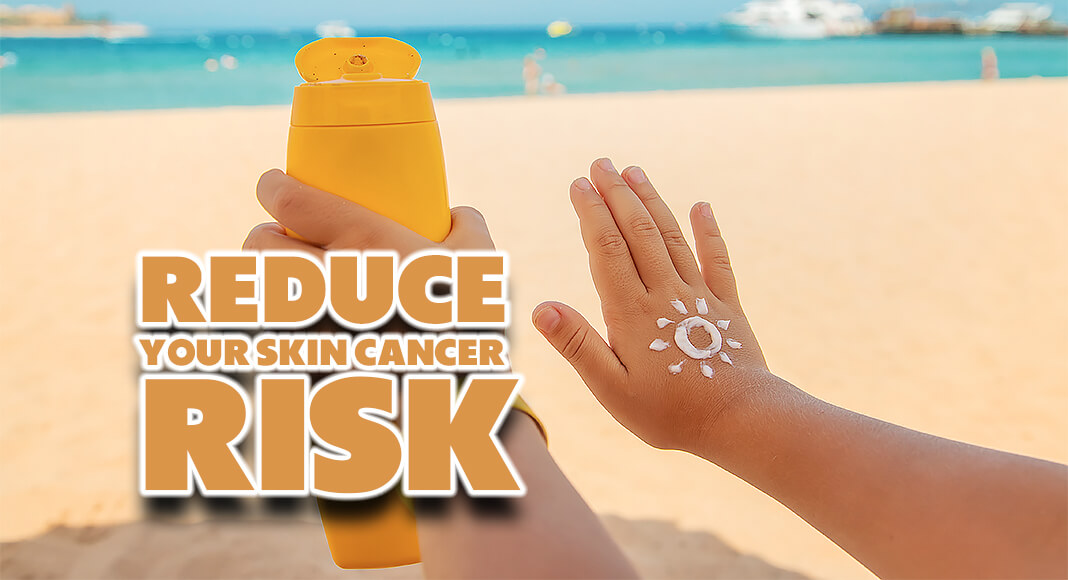
Mega Doctor News
Skin Cancer Foundation
New York, NY – Skin cancer is a disease that affects people of every age, gender and ethnicity. One in five Americans will develop skin cancer by the age of 70; in fact, more people are diagnosed with skin cancer each year in the U.S. than all other cancers combined.
But there is good news: skin cancer is also highly preventable. About 90 percent of nonmelanoma skin cancers and about 86 percent of melanomas are associated with exposure to ultraviolet (UV) radiation from the sun. Knowing the risk factors and practicing sun protection year-round are key to reducing your risk.
“It’s never too early or too late in life to start protecting your skin from sun damage,” says Deborah S. Sarnoff, MD, president of The Skin Cancer Foundation. “Parents and caregivers should teach children about sun protection at an early age and help them instill lifelong habits. And even after a lifetime of sun exposure, older people can stop further damage to their skin by making sun protection a priority.”
Here are The Skin Cancer Foundation’s tips for reducing your skin cancer risk:
Seek the shade, especially between 10 AM and 4 PM when the sun is strongest. An extra rule of thumb is the “shadow rule.” If your shadow is shorter than you are, the sun’s harmful ultraviolet (UV) radiation is stronger; if your shadow is longer, UV radiation is less intense.
Do not burn. A person’s risk for melanoma, the deadliest form of skin cancer, doubles if he or she had had five or more sunburns at any point in life.
Avoid tanning and UV tanning booths. UV radiation from tanning machines is known to cause cancer in humans. Indoor UV tanners are 74 percent more likely to develop melanoma, one of the deadliest forms of skin cancer, than those who have never tanned indoors. Tanning bed users are also 1.5 times more likely to develop basal cell carcinoma and 2.5 times more likely to develop squamous cell carcinoma, two of the most common forms of skin cancer. The more time a person has spent tanning indoors, the higher the risk.
Cover up with clothing, including a broad-brimmed hat and UV-blocking sunglasses. Clothing can be your most effective form of sun protection, so make the most of it with densely woven and bright- or dark-colored fabrics, which offer the best defense. The more skin you cover, the better, so choose long sleeves and long pants whenever possible.
Use a broad-spectrum (UVA/UVB) sunscreen with an SPF of 15 or higher every day. For extended outdoor activity, use a water-resistant, broad-spectrum (UVA/UVB) sunscreen with an SPF of 30 or higher.
Apply 1 ounce (2 tablespoons) of sunscreen to your entire body 30 minutes before going outside. Reapply every two hours or immediately after swimming or excessive sweating. One eight-ounce bottle of sunscreen should provide two full days of sun protection.
Keep newborns out of the sun. Sunscreens may be used on babies over the age of six months, but they should also be protected by shade and clothing. Children are very sensitive to ultraviolet radiation – just one severe sunburn in childhood doubles the chances of developing melanoma later in life.
Examine your skin head to toe every month. While self-exams shouldn’t replace the important annual skin exam performed by a physician, they offer the best chance of detecting the early warning signs of skin cancer. If you notice any change in an existing mole or discover any new spot that doesn’t heal after several weeks, see a physician immediately.
See your physician every year for a professional skin exam. You can also check DestinationHealthySkin.org to see if The Skin Cancer Foundation’s mobile skin cancer screen and education program is coming to your area.
For more information, please visit SkinCancer.org. Join the conversation on Facebook (@skincancerfoundation), X and Instagram (@SkinCancerorg).
About The Skin Cancer Foundation
The Skin Cancer Foundation, a 501(c)(3) nonprofit organization, saves and improves lives by empowering people to take a proactive approach to daily sun protection and the early detection and treatment of skin cancer. The Foundation strives to decrease skin cancer incidence and mortality by delivering public education programs, providing patients with guidance and reassurance, engaging medical professionals, awarding research grants and leading advocacy campaigns that call for policy changes. Since its inception in 1979, the Foundation has recommended regular skin exams and following a complete sun protection strategy that includes seeking shade, daily sunscreen use and covering up with clothing, wide-brimmed hats and UV-blocking sunglasses. For more information, visit SkinCancer.org.
Information Source: skincancer.org











